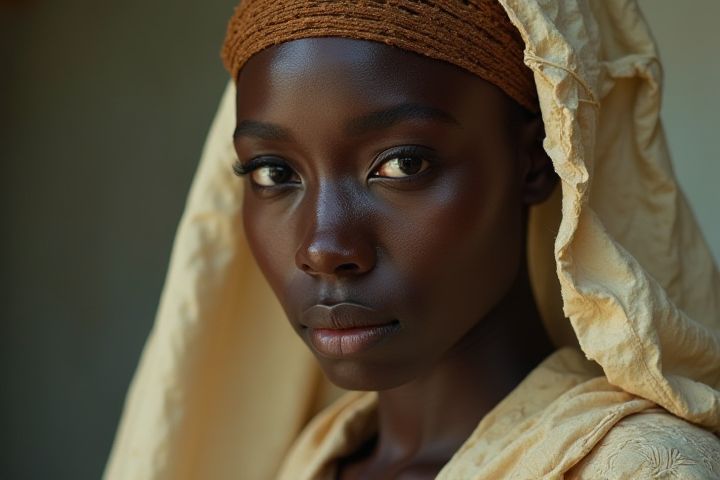
Nigeria's film industry, known as Nollywood, is one of the largest and most prolific in the world, producing thousands of films annually. The sector is characterized by its diverse storytelling, reflecting the rich cultural heritage and multifaceted social issues within Nigerian society. Major cities like Lagos and Abuja serve as hubs, where thousands of creative professionals--including directors, actors, and screenwriters--collaborate to bring stories to life. Film festivals, such as the Africa International Film Festival and the Nollywood Week Paris, showcase Nigerian films globally, enhancing their reach and cultural impact. You can explore this vibrant industry and discover unique narratives that resonate with audiences both locally and internationally.
Nollywood significance
Nollywood, Nigeria's film industry, is one of the largest globally, known for its prolific output and cultural impact. With a rapid production process, many films are shot within a week, showcasing diverse narratives that reflect Nigerian society. The industry has evolved to include various genres, from drama to comedy, resonating with both local and international audiences. As a result, Nollywood plays a crucial role in promoting Nigerian culture, creating jobs, and attracting foreign investment.
Industry growth
Nigeria's film industry, often referred to as Nollywood, has experienced significant growth in recent years, establishing itself as one of the largest film producers in the world. The sector contributed over $7 billion to the Nigerian economy, showcasing its potential as a major driver of job creation and cultural export. With the rise of streaming platforms, local filmmakers are gaining international exposure, increasing accessibility and audience engagement. Investment in technology and training programs continues to enhance storytelling quality, positioning Nollywood as a competitive force in the global entertainment landscape.
Regional influence
Nigeria's film industry, commonly known as Nollywood, showcases a rich tapestry of regional influences that reflect the diverse cultures and traditions of the nation. Each region contributes unique narratives, with the Yoruba, Igbo, and Hausa cultures shaping storytelling, language, and aesthetics in distinct ways. This regional representation fosters a deeper understanding of social issues, traditions, and everyday life, making Nigerian cinema relatable to both local and international audiences. By incorporating local dialects, customs, and folklore, filmmakers enhance the authenticity of their work, creating a vibrant cultural exchange that resonates across borders.
Language diversity
Nigerian cinema, often referred to as Nollywood, showcases an impressive tapestry of language diversity, reflecting the country's rich cultural heritage. With over 500 indigenous languages spoken, films frequently incorporate languages such as Yoruba, Igbo, and Hausa, capturing local dialects and nuances that resonate with audiences. This linguistic variety not only enhances authenticity but also promotes greater visibility for regional identities and stories. By embracing these diverse languages, Nollywood fosters a deeper connection between the film's narrative and the cultural experiences of its viewers.
Economical impact
The Nigerian film industry, often referred to as Nollywood, significantly contributes to the nation's economy, generating billions in revenue annually. With its expansive production capabilities, Nollywood creates employment opportunities for thousands, ranging from actors and directors to writers and technicians. The global reach of Nollywood films promotes tourism and enhances Nigeria's cultural influence, fostering international partnerships and investments. By prioritizing local stories and innovative content, your engagement with Nigerian cinema supports not only artistic expression but also economic growth within the region.
Global reach
Nigerian cinema, commonly referred to as Nollywood, has seen substantial growth in global reach, characterized by its diverse storytelling and unique cultural representation. With access to platforms like Netflix and Amazon Prime, Nigerian filmmakers now showcase their work to international audiences, breaking geographical barriers. The infusion of contemporary themes alongside traditional narratives resonates with viewers worldwide, enhancing the appeal of films such as "The Wedding Party" and "Lionheart." As your perspective broadens, exploring Nollywood's rise reveals the increasing significance of African narratives in the global film industry.
Storytelling traditions
Film in Nigeria showcases rich storytelling traditions that reflect the diverse cultural heritage of the nation. From folklore to contemporary narratives, these films often highlight local customs, languages, and societal issues, making them resonate with audiences both locally and globally. The Nollywood industry, one of the largest in the world, emphasizes character development and moral lessons, drawing inspiration from traditional oral storytelling techniques. By incorporating vibrant visuals and authentic soundtracks, Nigerian filmmakers create an immersive experience that captivates viewers and preserves the essence of Nigerian culture.
Censorship challenges
The Nigerian film industry, known as Nollywood, grapples with significant censorship challenges that impede creative expression. Filmmakers often face restrictions from the National Film and Video Censors Board (NFVCB), which enforces regulations that can limit content deemed inappropriate or controversial. These restrictions can hinder filmmakers from addressing pressing societal issues such as corruption, human rights, and cultural identity, often forcing them to alter their narratives. As a viewer, navigating these complex layers of censorship can enrich your understanding of the creative process behind the films that reach the audience.
Digital platforms
The Nigerian film industry, widely known as Nollywood, is rapidly embracing digital platforms for distribution and viewership. Streaming services like Netflix and Amazon Prime Video have become popular venues for showcasing local films, enabling wider audience access beyond traditional cinema. This shift towards digital has also fostered innovative storytelling techniques and expanded production budgets, contributing to higher quality films. As a result, you can enjoy a diverse range of Nigerian cinema that reflects rich cultural narratives while engaging with global themes.
Film festivals
Film festivals in Nigeria play a crucial role in showcasing the country's vibrant cinematic talent and rich cultural heritage. Events like the Africa International Film Festival (AFRIFF) and the Toronto International Film Festival's Nigeria chapter highlight the creativity of Nigerian filmmakers, actors, and artists, drawing international attention. These festivals not only provide a platform for independent films but also facilitate networking opportunities for industry professionals, promoting collaboration within Africa's film landscape. By attending these festivals, you can experience diverse storytelling and gain insights into the evolving Nigerian film industry.
